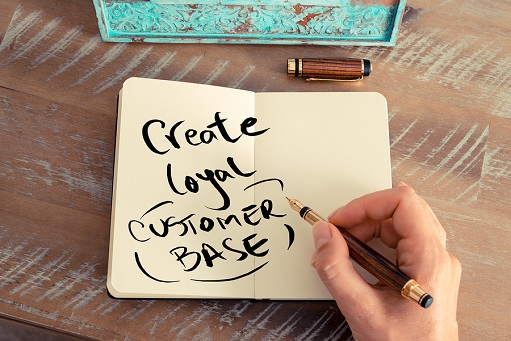
Usman Ghani (July 22, 2016)
Every business strives to gain customer loyalty since it leads to recurrent purchases. It is important to note that businesses with a loyal client base spend less on persuasive marketing because their clients are willing to purchase their products and services anyway. In today’s competitive environment it is difficult for businesses to maintain loyalty as there are a multitude of options for customers out there. At the same time, businesses are inclined to innovate and spend millions on research and development, which might constrict their budget for marketing. Some of the ways through which companies can try to gain and maintain loyalty are as follow:
Companies should focus on developing and presenting their offers in such a way that clients perceive them as unique and different from competitors. Companies can use effective marketing techniques to pinpoint and highlight the unique features and attributes of their offers. Companies like Ralph Lauren, Old Navy and Levi Strauss & Co have developed a brand perception that revolves around a unique image and lifestyle, which customers try to emulate by buying their products. Essentially, these companies are selling apparel but because of the brand affinity that has developed due to a distinctive brand name and products, these companies are maintaining a loyal following.
Another way to ensure customer loyalty is offering value-added services as an addition to the core offers. Companies have the resources to offer additional services without exponential increase in costs. For instance, Microsoft’s Windows comes with online driver support, upgrades and additional downloadable features. Offering value-added services creates a positive perception in the minds of customers, since it sends out a clear message that their relationship with the company doesn’t end with the purchase. Moreover, offering value-added services also translates into on-going interaction with clients, hence assisting the process of client relationship management and cross-selling.
Many companies try to create a feeling of exclusivity for clients in an attempt to garner a loyal following. It is important for companies to acknowledge that although it might not be feasible to offer distinct products and services to individual clients, there are ways through which some level of exclusivity can be offered without completely changing the business model. Companies like Nike and Apple are known to offer limited-edition products which customers seek to collect by making more purchases or participating in a luck draw. Additionally, many companies have been experimenting with customized products – allowing clients to tweak, personalize and slightly change the products and services to add the element of exclusivity. For example, HP allows clients to design their own laptops with technical and physical specifications according to their preference. Banks and insurance companies often offer their clients special accounts and policies to better serve their needs.
Companies can also earn loyalty by acting on the feedback provided by customers. Most companies are very keen on collecting feedback from clients but only a few take the recommendations/suggestions seriously and develop an action plan based on them. It is important to develop a feedback mechanism, through which a company can turn the feedback into actionable data. Feedback from clients can be invaluable for the company in the context of developing new products and services. Additionally, honest feedback from clients sets the company on a course to seek continuous improvement in service delivery and design.
One thing common among all the companies that have been able to develop a loyal customer base is their willingness to acknowledge their shortcomings in terms of product design or service delivery. It is important to learn from their mistakes and thrive to offer better services in future. At the same time, sincere apology and compensation should be offered to clients who have been inconvenienced. Managers can depend on feedback to gain perspective about how the clients feel about their offers and can take steps to modify the service experience according to their expectations to achieve higher levels of customer satisfaction.

Healthcare workers are entrusted with the great responsibility of caring for people. In order to continually offer comfort and care to people, there are certain skills that healthcare professionals need to master. Of course there are the obvious ones related...
Read More
Creative thinking is one of the most important and sought after soft skills that you need to acquire in an increasingly digital landscape of 2021 and beyond. Creative thinking skills are required in many different job roles to come up...
Read More
Sales are the backbone of any business and great salespeople are an asset for the company. Some people are naturally gifted in the art of persuasive communication and negotiation skills required to convince clients and effectively sell more. However, certain...
Read More